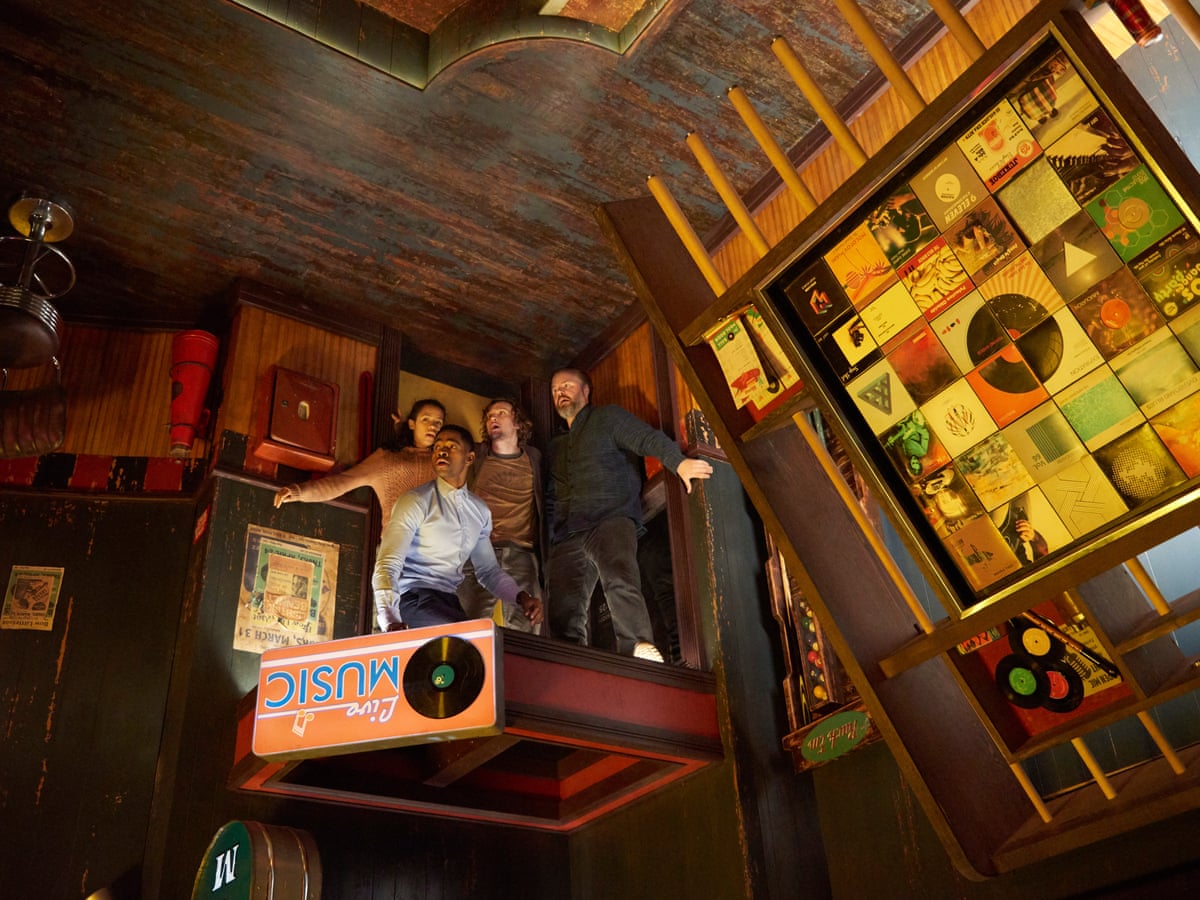Best Escape Room-- Examination Your Skills and Solve the Enigma
Best Escape Room-- Examination Your Skills and Solve the Enigma
Blog Article
Team Techniques: Exactly How to Work together Effectively in a Getaway Space
Teams must actively pay attention to each member's insights, designate roles that straighten with individual staminas, and maintain normal check-ins to make certain focus and protect against redundancy. By promoting an environment that values communication and flexibility, teams can significantly heighten their performance and success rates.
Establish Clear Interaction

To promote clear communication, it is necessary to designate a main factor of contact for information circulation. This function involves summarizing searchings for and recommended approaches to ensure everybody remains on the very same page. In addition, taking on an organized method to discussions can stop chaotic exchanges. As an example, brief, focused updates from each employee can maintain the team educated without overwhelming them with details.

Appoint Roles Strategically
While clear interaction sets the structure for effective teamwork, assigning functions purposefully makes sure that each team participant's toughness are used efficiently. In a retreat space situation, the time-sensitive and complex nature of obstacles demands an efficient technique to task delegation. By identifying and leveraging individual competencies, groups can optimize their problem-solving abilities and boost general efficiency.
First, examine the special skills and features of each participant. Someone with a keen eye for information could succeed in discovering hidden things, while a rational thinker can be better matched to fixing puzzles. It's similarly vital to have a leader that can look after progress, handle the timeline, and make crucial calls when essential. This role usually requires strong business and interpersonal skills.
2nd, make certain that functions are versatile and adaptable. As new difficulties emerge, the team should be able to pivot, reapportioning tasks as called for. This flexibility aids keep energy and avoids bottlenecks that might happen because of inflexible duty assignments.
Ultimately, a tactical strategy to duty job not just makes best use of the toughness of each staff member but also fosters a natural setting, driving the group towards a successful retreat.
Make Use Of Diverse Abilities
Identifying and harnessing the varied abilities within this link your team can significantly boost your efficiency in a getaway room. Each staff member brings one-of-a-kind staminas to the table, and successfully leveraging these abilities can accelerate analytic and boost read review general efficiency. For instance, a team member with strong logical abilities could excel at understanding intricate codes or patterns, while another with eager observational abilities might quickly identify hidden clues that others could overlook.
Effective interaction is vital to utilizing these varied skills. Motivate staff member to articulate their understandings and ideas immediately, making sure that all prospective remedies are considered. This inclusive approach cultivates a dynamic setting where creativity and vital reasoning can flourish. Additionally, designating tasks that straighten with each participant's toughness can avoid bottlenecks and guarantee that progression is constant.
Furthermore, diversity in skills usually equates to diversity in thinking designs, which is very useful in a getaway room setting. While some challenges may call for sensible thinking and precision, others may take advantage of creative and lateral thinking. By recognizing and leveraging this variety, teams can deal with a broader array of difficulties much more effectively, therefore raising their chances of an effective getaway.
Manage Time Effectively

First, assign preliminary minutes for a quick study of the area. Determine visible puzzles and separate tasks based upon group members' staminas, making sure that nobody is idle. Establish inner time checkpoints to examine progress periodically; as an example, purpose to have half the problems fixed by the mid-point of the video game. This technique can help maintain the group concentrated and protect against time from escaping unnoticed.
In addition, stay clear of passage vision. If a puzzle is taking also long, turn employee or carry on to an additional difficulty, returning later on with fresh viewpoints. Communication is vital-- maintain look what i found everybody upgraded on fixed challenges and continuing to be jobs to avoid redundant initiatives.
Finally, make use of any type of tips or hints sparingly however strategically - best escape room. Knowing when to request help can conserve valuable time. By sticking to these time monitoring principles, teams can significantly improve their opportunities of an effective and enjoyable escape area experience
Debrief and Show
Reflection is a vital element of group advancement and renovation in the context of escape areas. Once the difficulty is completed, whether successfully or otherwise, it is important for the group to engage in a structured debriefing session. This process enables staff member to evaluate their performance, determine toughness, and pinpoint areas for renovation.
Start the debrief by discussing what went well. Highlight certain circumstances of efficient interaction, analytic, and collaboration. Acknowledging these positive actions reinforces them and encourages their rep in future obstacles.
Discuss moments of confusion, miscommunication, or ineffective strategies. Urge an open and useful dialogue where team participants can share their point of views without anxiety of objection.
Verdict
In verdict, effective collaboration in an escape area is asserted upon clear interaction, tactical role tasks, the effective usage of varied skills, and skilled time monitoring. By developing a natural and flexible team setting, the likelihood of efficiently addressing challenges and attaining the goal of getting away the space is significantly boosted.
Report this page